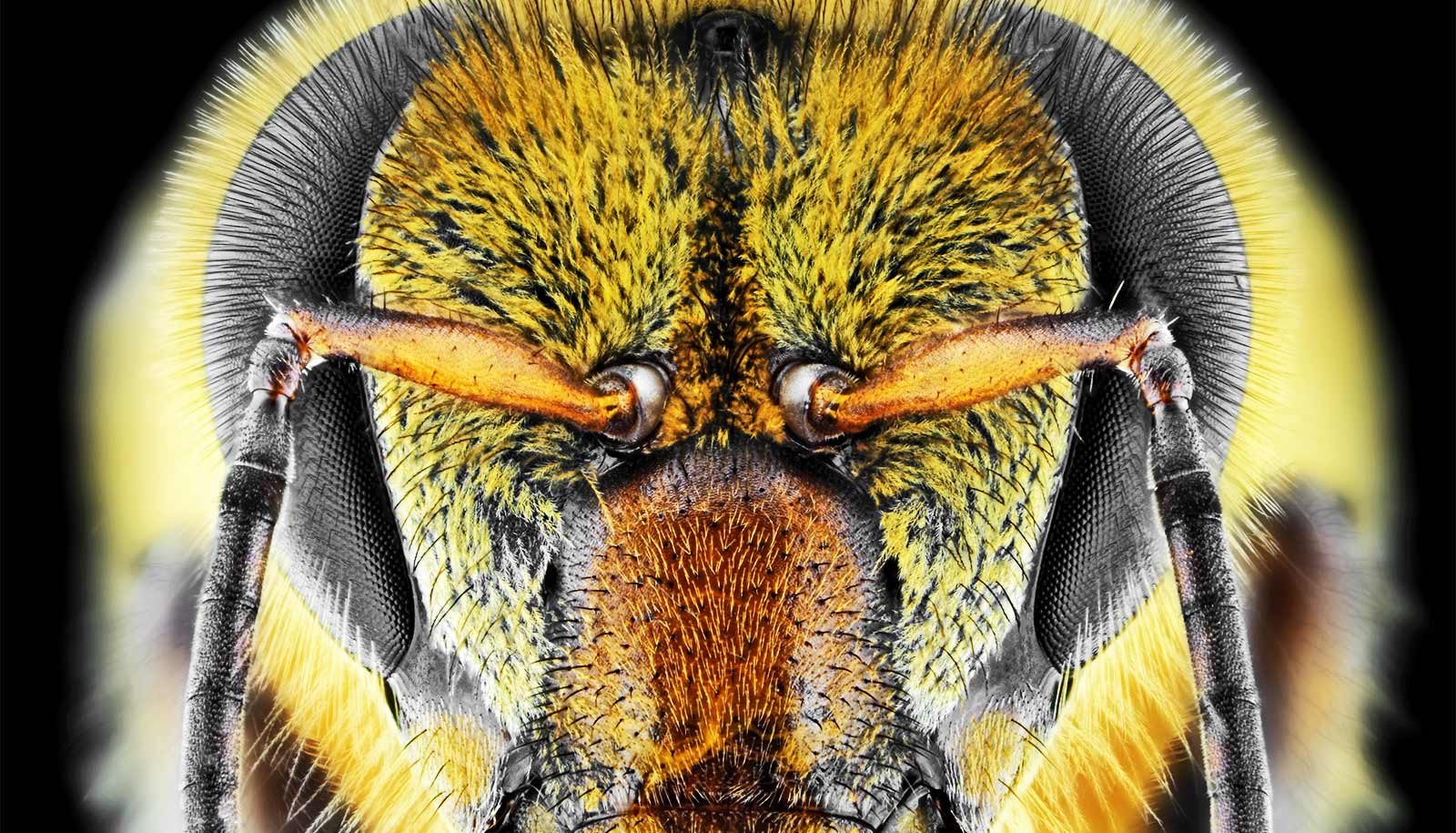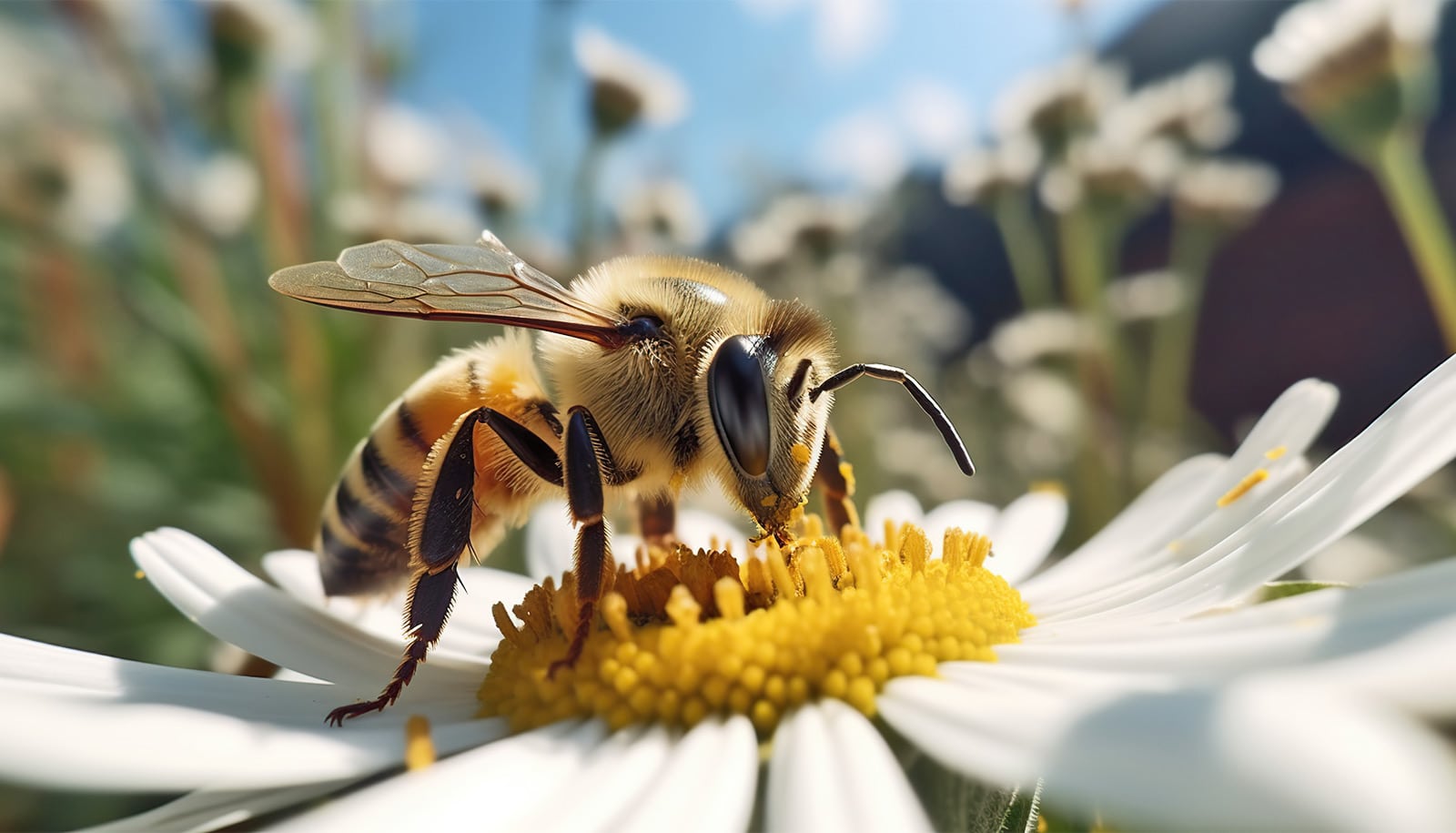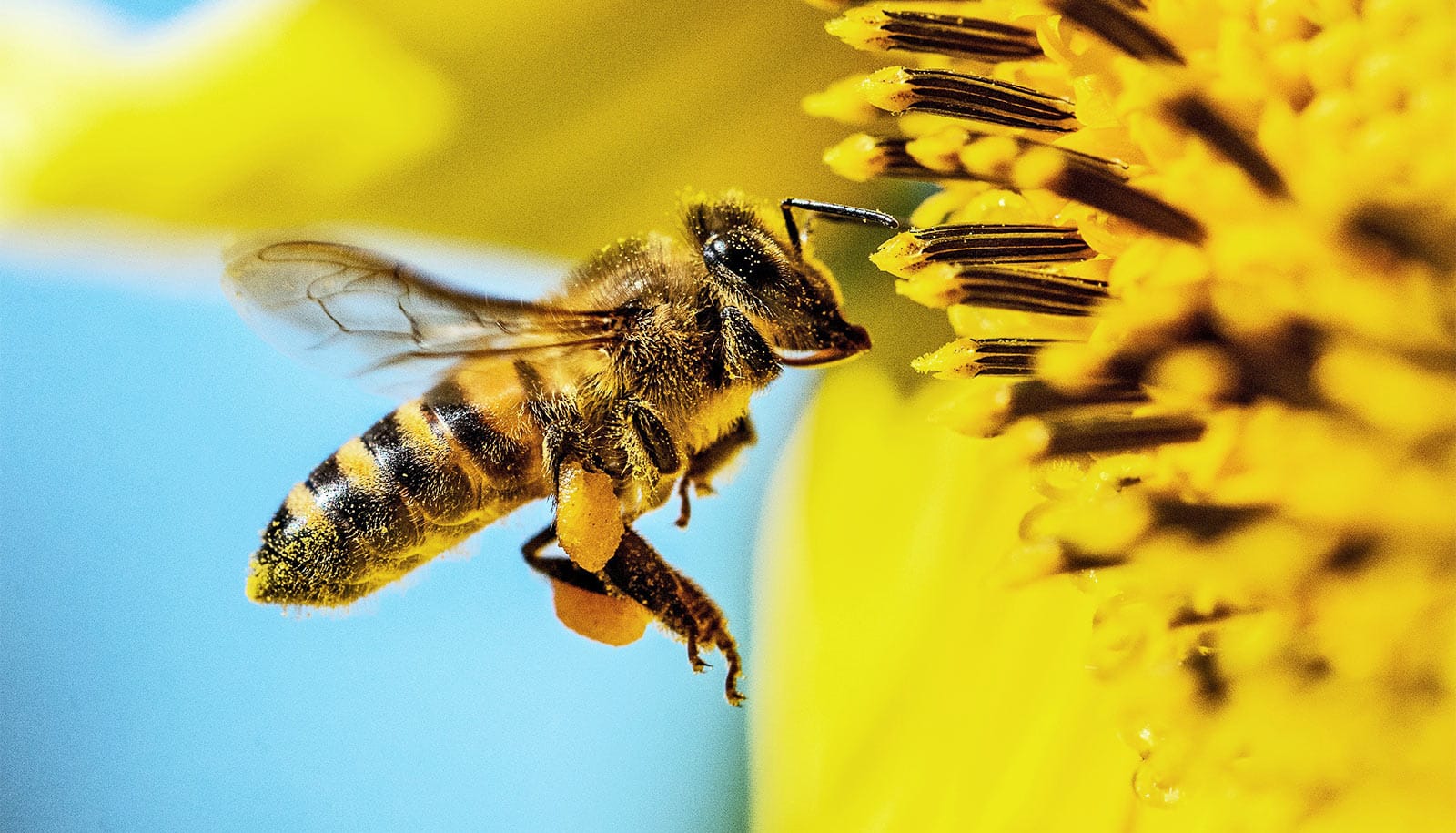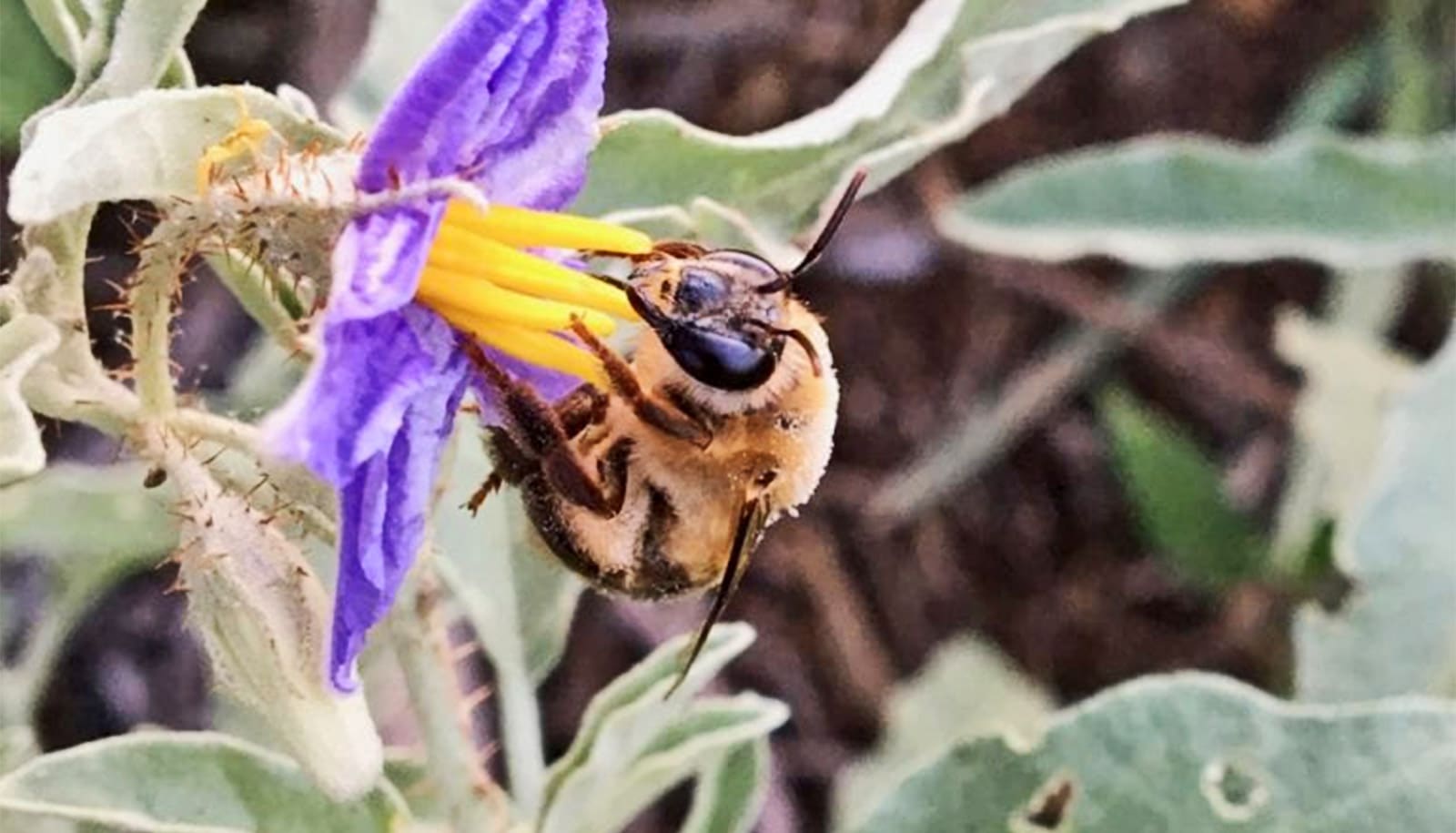Bees can recognize human faces, but there’s a bit more to the story, says David Tarpy.
Recently Tarpy, a professor of applied ecology at North Carolina State University and all-around beekeeping expert, sat down with the Audio Abstract podcast to talk bees.
One of the questions that came up when talking about how bees see the world was whether they recognize faces.
You can read Tarpy’s answer below.
In the full podcast episode, Tarpy also digs into topics that run the gamut from how many bees there are in the US (approximately), to how bad their eyesight is, and what happens to drones at the end of the honey-making season. Listen below:
Download the podcast transcript.
Can bees recognize faces?
Yes, bees can recognize and differentiate between human faces, so they can recognize their beekeepers over somebody else.
There was this really interesting and splashy study that was done by researchers at Cambridge in 2004. They set up a reward system where the bees learned to associate particular faces with a honey reward—similar to the way Pavlov’s dogs learned to associate food with a bell’s sound and would salivate at the ring of a bell.
Bees are really, really good at learning. They will stick out their tongues expecting a little bit of honey reward if they get a particular stimulus—in this case, if they flew toward a certain face. So the researchers could see how well they learn, and if they can learn different faces. And the answer is they can.
The real question is if bees do this in normal practice, and the answer is probably not. There’s no real need for them to distinguish one big mammal from another big mammal. But the fact is that they can, and it’s very interesting how well they can learn and discriminate between different things in their environment.
It’s also important to remember that bees don’t really have very good eyesight. Even though they can see human faces, their eyesight is not nearly as good as their sense of smell, which is the primary means by which they communicate.
Have you heard any anecdotal stories from beekeepers about how their bees know they’re coming or their bees recognize them when they walk toward the hive?
Absolutely—this happens all the time. If you go out and visit your colony at the same time, day after day, they will be waiting for you. They will anticipate your arrival. But that’s really based on their ability to learn things based on their circadian rhythms: like, this flowering plant only opens in the late afternoon. Bees can integrate decisions through their circadian rhythms to be able to anticipate rewards that are important to them, such as where the food is and when it’s available, or threats such as bears or humans coming and robbing their honey. So they can actually distinguish and learn those things over time.
Note: Both questions and Tarpy’s answers have been lightly edited for readability.
Source: North Carolina State University



